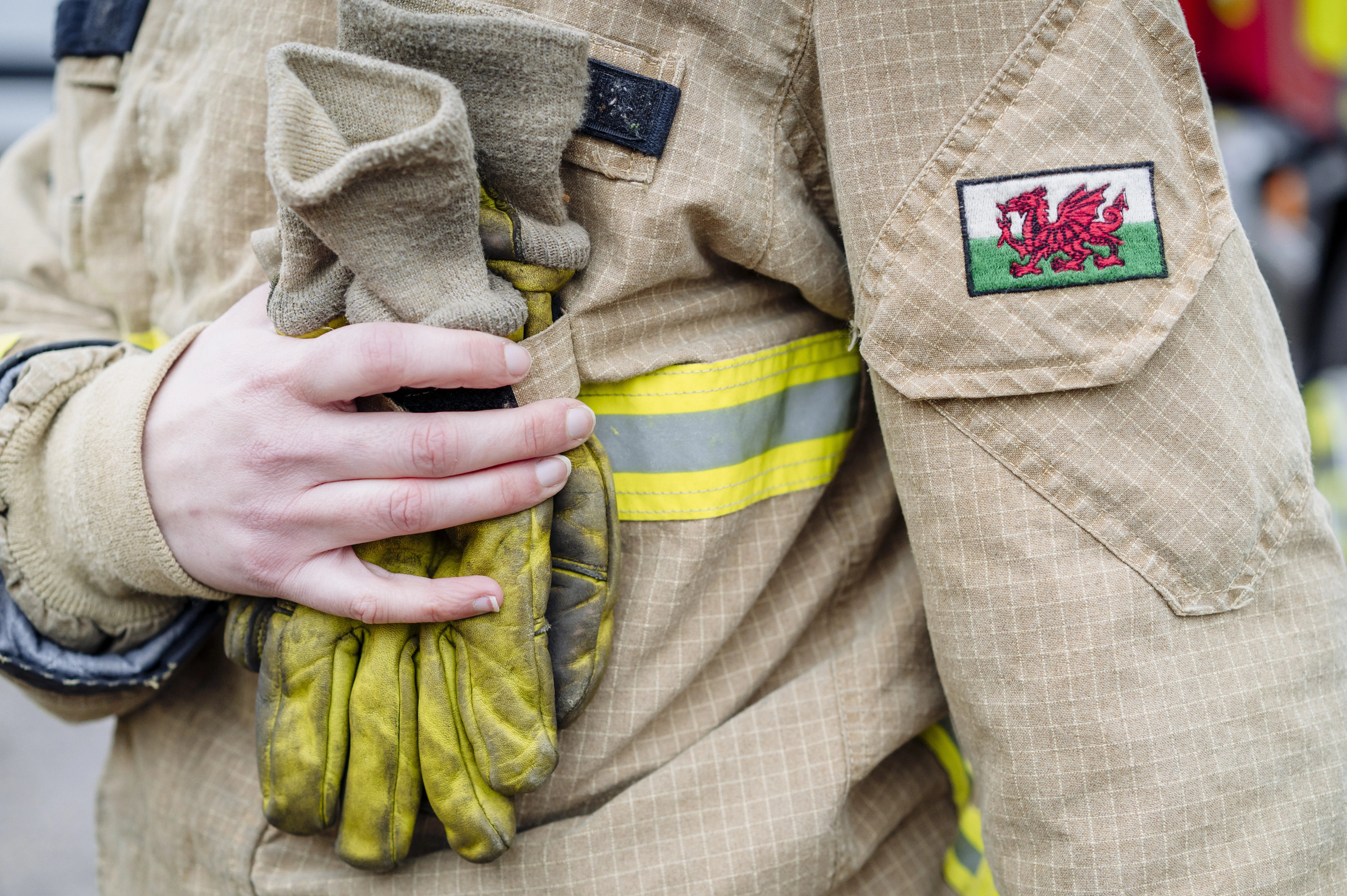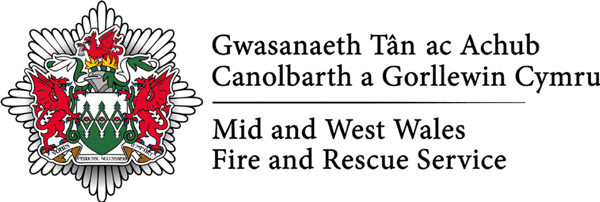Shwmae Su’mae Day takes place across Wales annually on October 15th, which is a national celebration of the Welsh language, led by Mentrau Iaith Cymru.
The first Shwmae Su’mae Day was held in 2013 to encourage the use of Welsh to start every conversation and that Welsh belongs to everyone – fluent speakers, learner and those who feel their linguistic skills are a little rusty. The theme of this year’s campaign is having fun while speaking Welsh, wherever you live and whatever your level.
Mid and West Wales Fire and Rescue Service (MAWWFRS) is dedicated to expanding its bilingual services to better reflect the linguistic diversity of the communities it serves, going beyond legislative requirements.
A key example of the Service’s dedication to advancing the Welsh language within the organisation is its support for staff in developing and improving their Welsh language abilities. Two members of MAWWFRS who have benefitted from Welsh language courses, provided by the Service, are Amy Richmond-Jones, Engagement, Planning and Performance Manager, and Rachel Kestin, Communications, Engagement and Consultation Officer.
Below, they discuss their experiences in their respective journeys in learning and developing their Welsh language skills.
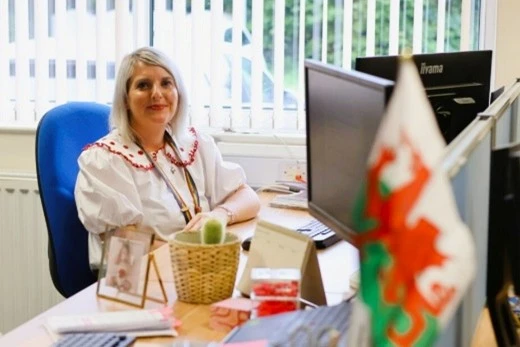
Amy Richmond-Jones
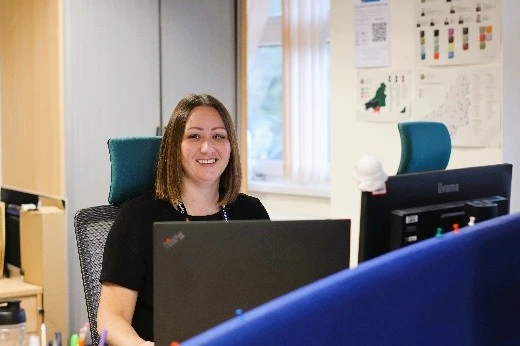
Rachel Kestin
Did you speak Welsh or hear the language when at home as a child?
Amy:
No, I grew up in a non-Welsh-speaking household.
Rachel:
Dwi’n dod o’r Rhyl!! It was very rare to hear Welsh in Rhyl! And it was never spoken at home. I learnt it in school but neither my brother, who was only a year older, or I continued the conversations back home.
How much Welsh was spoken at your school?
Amy:
Recognising the importance of growing up as Welsh speakers in Wales, and the benefits that might bring, my parents chose to send my sister and me to both a Welsh-medium primary and secondary school, where we were educated through the medium of Welsh.
Rachel:
Tipyn Bach! We had one compulsory Welsh lesson a week if I recall. You only spoke Welsh within that lesson unless you bumped into your Welsh teacher in the corridor, but that was very rare!
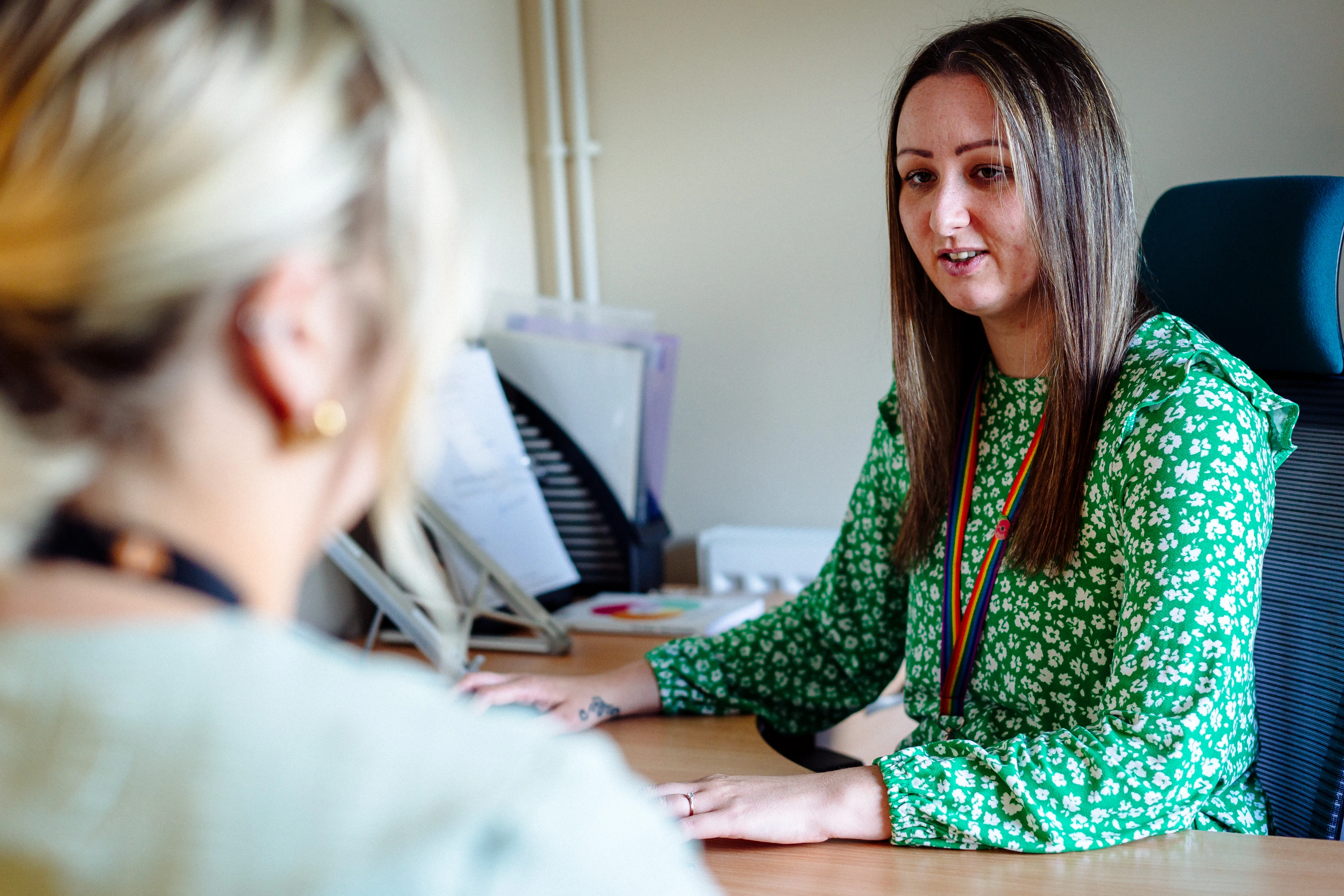
When did you realise or feel that you wanted to speak more Welsh and what was the reason for it?
Amy:
I started wanting to speak more Welsh when I realised I could understand conversations going on around me, but I never felt confident enough to use it. I’d gone through Welsh-medium education, so the foundation was there, but outside of school I just defaulted to English because I didn’t feel confident using my Welsh. It felt important to keep the language alive in my everyday life, so I’ve been trying to build my confidence and use it more —especially at work and in day-to-day conversations.
Rachel:
When I moved to West Wales from North Wales it became very apparent that Welsh language was a way of living here. I didn’t have the need to speak Welsh in my previous jobs in Carmarthen but joining the Fire and Rescue Service was an eye opener! I’d never been in a situation where there were more Welsh speakers than English. I think hearing it around me every day made me want to learn.
Llew, the Welsh Language Standards Officer in MAWWFRS really encouraged me to get involved in Welsh learning and made it sound relaxed and fun to do (which it is).
How did you go about learning and improving your Welsh?
Amy:
I initially requested support to improve my Welsh language skills through the Service’s Individual Development Review process and was then signposted to relevant courses.
Rachel:
I practice during the week and in my Welsh class, as well as occasionally listening to Welsh language radio.
Speaking to the Welsh Language Standards officer really helped boost my confidence, he made me want to give it a go with no pressure or expectations.
What was or is the hardest part of your journey with the language?
Amy:
Building confidence in using the language has been a big part of the journey. I used to put a lot of pressure on myself to be word-perfect, which made me avoid speaking Welsh altogether. Now, if I’m unsure of a word, I just switch to English briefly and carry on in Welsh, which has made a big difference.
Rachel:
My memory! It sounds like an excuse but after 3 babies and aging, my memory is really poor! More so my short-term memory which is not helpful! I wish I could retain information a bit better in the short term.
Also, my confidence, I always doubt my abilities.
What is the most positive thing that has come from learning and improving your Welsh?
Amy:
Being able to chat with lots of different people, both at work and outside of work, has really helped me use more Welsh.
Rachel:
I’m able to understand a lot more of what people are saying in Welsh now. I can grasp a conversation around me from hearing just some of the words. I may not get it all, but I get the gist!
My confidence to speak it in front of people without feeling stupid! I get encouraged and not laughed at… much!
What message would you give anyone who is thinking about learning the language or improving their skills?
Amy:
It is never too late to start learning. Don’t worry about being perfect—everyone starts somewhere, and making mistakes is part of learning. There are loads of great resources and support out there, and even using a little bit of Welsh day to day can make a big difference. It’s a brilliant way to connect with the culture and people around you, and the more you use it, the more confident you become.
Rachel:
Cliché but give it a go! You have nothing to lose. My class is online and lots of fun! I have gained new acquaintances from my Welsh course! We have a WhatsApp group that we all use to help each other, chat and practice.
I was scared of looking stupid, but my lecturer is such a nice guy and really makes you feel at ease!
Do you have a favourite Welsh word or phrase (and why)?
Amy:
I really like the word hiraeth - especially because there’s no direct English translation, and is uniquely Welsh.
Rachel:
Dwi’n brysur (I’m busy), Dw’i wedi blino (I’m tired) and Dwi’n ddiog (I’m lazy) - I use them a lot in my lessons.
I love the word ofnadwy because it sounds great when you say it and it pretty much describes how I think I sound speaking Welsh!
